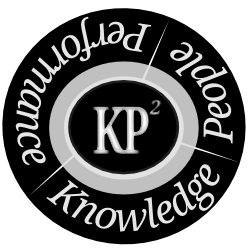I just got back from my first Academy of Management Conference. The AOM Conference is the largest annual gathering of management scholars in the world. This year, it was attended by roughly 10,000 people from around the world and it took place in San Antonio, TX, USA. At the conference there are a number of panels, symposia, workshops and special programs for doctoral students. Doubtlessly, I was privileged to go.
I thought I’ll give a quick overview of what it was like, followed by blog posts on the doctoral workshop I attended, outstanding events & people as well as tips for getting research published. In order to find out more, check out the conversations around the meeting by having a look at the Twitter Hashtag #AOM2011.
Going through the program beforehand, I recognized a number of names that I had come across in my research. The AOM Conference surely is a great chance to put faces to the articles one is normally reading. As mentioned above, there were different session formats, each serving a particular purpose. The most powerful type of event, to my mind, are the professional development workshops. I attended such a PhD workshop by the AOM Division on Organizational Change and Development and another one for new doctoral students. Furthermore, I went to a Symposium on Dynamic Capabilities, for example, which constitutes a central topic of my doctoral program. This gave me a chance to hear the dicussions scholars are currently having. Their talks usually started by summarizing the literature in their particular fields and then they went right into the controversies. Roundtable discussions were useful to get a feel for the questions other scholars are likely to ask in response to particular papers or studies which are in the process of being published. One such Discussion Session was on Relationships, another component of my PhD program. Last but not least there are the socials, of course, which took place at numerous locations around the city. You can tell networking is an essential part of the event and much room is given for such activities. There is even an AOM Party Account on Twitter and a Google Calendar published for this purpose. My personal favorite was Monday night’s reception on the Tower of the Americas. All in all, the AOM Conference is great value for money.
I’ll close this post with a quote from Bill Pasmore, who’s the editor of the journal Research in Organizational Change and Development and who was also part of the above mentioned workshop: “You tell us where to go, because you are the future of change!” In this sense, it was inspiring to see the big shots in the management field while at the same time we were introduced to the academic profession and made aware of the fact that it is our research that will drive the discipline and will be published 5-10 years from now.

